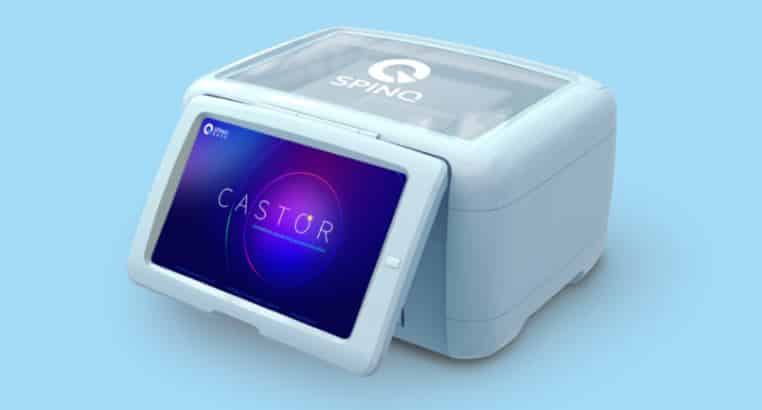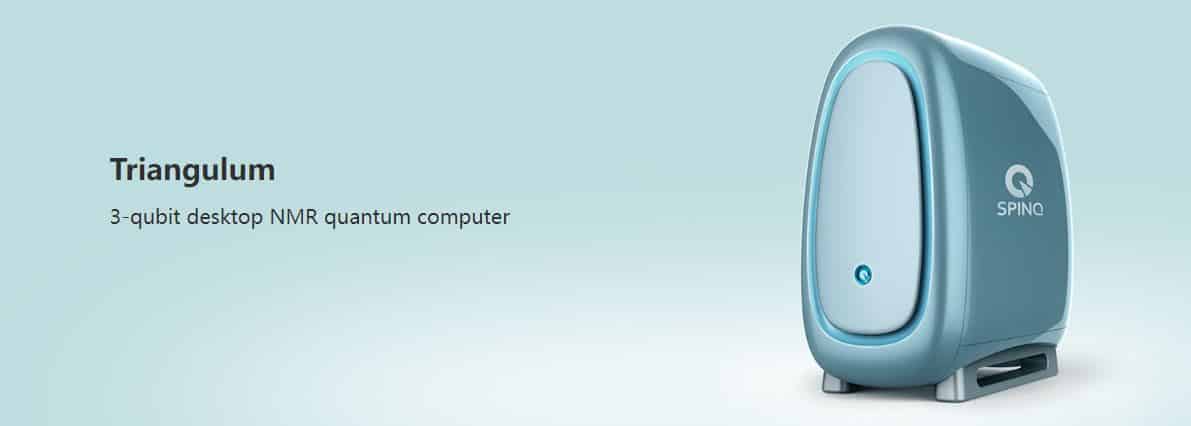
The world’s first portable quantum computers are now on sale from the Chinese company SpinQ Technology. SpinQ is currently offering 3 different designs of quantum computers: the Gemini, Gemini Mini and the Triangulum.
You can now buy a quantum computer for as cheap as $8,100, representing an incredible step forward in the technology. They were first theorized in the 1980s by legendary physicists Richard Feynman and Yuri Manin though the first working quantum computer wasn’t built until 1998.
Quantum computing has seen gargantuan leaps and bounds since the first prototype, which only functioned for a few nanoseconds.
What are Quantum Computers?
Quantum computers are nothing like traditional computers. Traditional computers use binary bits, each bit being a 0 or 1, to process and store data. However, quantum computers use quantum bits, or “qubits.”
Unlike regular bits, qubits can represent both 0 and 1 at the same time because of a property known as quantum superposition. They also use another quantum effect called entanglement, which lets qubits be connected in such a way that the state of one can instantly influence the state of another, regardless of the distance between them.
This allows quantum computers to perform many calculations (of a certain type) simultaneously and solve complex problems much faster than traditional computers. It’s similar to having a super-fast multi-tasker that can do lots of different jobs at the same time, while a regular computer would have to do each job one after the other.
However, there are major drawbacks to current quantum computers. To create the quantum effects necessary for the computer to work the qubits need to be entirely isolated from the outside world. This means that the computers need to be built extremely carefully and kept at almost absolute zero which is -273°C.
The largest working quantum computer today is IBM’s 433 qubit model which is already an impressive feat. On the other hand, traditional computer memory is measured on the scale of Gigabytes (over 8 billion bits) and Terabytes (over 8 trillion bits).
Who Needs a Portable Quantum Computer?
No one needs a quantum computer at all, especially because they aren’t yet big enough to be better than modern traditional computers. Instead of designing these computers for personal use, SpinQ had education in mind.
Though SpinQ’s 2 and 3-qubit quantum computers won’t be breaking the Bitcoin hashing algorithm or be used for any kind of discoveries, they can still be extremely useful. They are large enough to be great teaching tools.
Users can get a head start with the tech, programming and running quantum circuits, giving them practice for the inevitable future of advanced quantum computing.
The Gemini Mini, pictured above, is cheap enough at $8,100 that some institutions and universities could reasonably afford it. SpinQ is also selling a larger model (still with 2 qubits) called the Gemini that can perform significantly more complex operations than the Gemini-Mini. This model, seen below, costs just over $41,000.

Finally, SpinQ is selling an even beefier model, the Triangulum, that ups the qubit count to 3. This model was designed to function for longer than the Gemini computers, though it can’t handle the same level of complexity of operations. The Triangulum can be purchased for about $57,000.

These devices are certainly impressive pieces of technology but their existence is puzzling to many experts in the field. The technique it uses to keep the qubits isolated, called Nuclear Magnetic Resonance (NMR), has many seemingly unsurpassable limitations that greatly constrain its size and abilities.
Even more puzzling is the fact that there are already a few different advanced cloud-based quantum computer simulators, offered by IBM, AWS, NVidia and even SpinQ). These simulators are often much more capable than SpinQ’s physical devices, which would suggest that they would be better teaching tools.
Related Articles:
Researchers Demonstrate Quantum Mechanics on an Unheard-Of Scale
Best Tech Stocks to Watch in 2023 – How to Buy Tech Stocks
Funding For Semiconductor Startups Plummets In The US, Soars In China
What's the Best Crypto to Buy Now?
- B2C Listed the Top Rated Cryptocurrencies for 2023
- Get Early Access to Presales & Private Sales
- KYC Verified & Audited, Public Teams
- Most Voted for Tokens on CoinSniper
- Upcoming Listings on Exchanges, NFT Drops